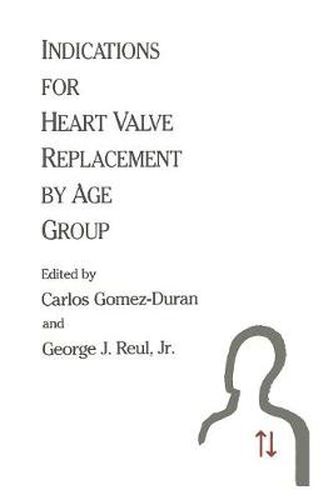Readings Newsletter
Become a Readings Member to make your shopping experience even easier.
Sign in or sign up for free!
You’re not far away from qualifying for FREE standard shipping within Australia
You’ve qualified for FREE standard shipping within Australia
The cart is loading…






This title is printed to order. This book may have been self-published. If so, we cannot guarantee the quality of the content. In the main most books will have gone through the editing process however some may not. We therefore suggest that you be aware of this before ordering this book. If in doubt check either the author or publisher’s details as we are unable to accept any returns unless they are faulty. Please contact us if you have any questions.
The papers presented at the Fifth International Symposium on Heart Valves and published in this volume discuss clinical experience with heart valve replacement in pediatric patients, in adults (age 65 and younger), and in the elderly (age 66 and older). Special considerations in heart valve replacement, such as valve selection, reoperation, results of double valve implantation, quality of life, and the use of valved conduits are also included. Finally, long term clinical follow-up with the ST. JUDE MEDICAL ® heart valve, giving 7- and 8-year data is discussed. HEART VALVE REPLACEMENT IN PEDIATRIC PATIENTS Anticoagulation Anticoagulation in children is a difficult and interesting problem. Three princi pal considerations in the use of anticoagulants are patient education, timing, and anticoagulating substance. Additional considerations are patient tolerance and compliance. Generally, the findings indicate, if pediatric patients receive anticoagulation following mechanical valve replacement, it is well accepted and results in few complications. If children are not anticoagulated, complications arise. Conflicting results regarding the efficacy of PERSANTINE ® and the use of aspirin vs. COUMADIN ® were reported. Doctor Sade’s data address some of these questions. * After a 5-year study in * See J Thorac Cardiovasc Surgery 1988; 95:533-561.
$9.00 standard shipping within Australia
FREE standard shipping within Australia for orders over $100.00
Express & International shipping calculated at checkout
This title is printed to order. This book may have been self-published. If so, we cannot guarantee the quality of the content. In the main most books will have gone through the editing process however some may not. We therefore suggest that you be aware of this before ordering this book. If in doubt check either the author or publisher’s details as we are unable to accept any returns unless they are faulty. Please contact us if you have any questions.
The papers presented at the Fifth International Symposium on Heart Valves and published in this volume discuss clinical experience with heart valve replacement in pediatric patients, in adults (age 65 and younger), and in the elderly (age 66 and older). Special considerations in heart valve replacement, such as valve selection, reoperation, results of double valve implantation, quality of life, and the use of valved conduits are also included. Finally, long term clinical follow-up with the ST. JUDE MEDICAL ® heart valve, giving 7- and 8-year data is discussed. HEART VALVE REPLACEMENT IN PEDIATRIC PATIENTS Anticoagulation Anticoagulation in children is a difficult and interesting problem. Three princi pal considerations in the use of anticoagulants are patient education, timing, and anticoagulating substance. Additional considerations are patient tolerance and compliance. Generally, the findings indicate, if pediatric patients receive anticoagulation following mechanical valve replacement, it is well accepted and results in few complications. If children are not anticoagulated, complications arise. Conflicting results regarding the efficacy of PERSANTINE ® and the use of aspirin vs. COUMADIN ® were reported. Doctor Sade’s data address some of these questions. * After a 5-year study in * See J Thorac Cardiovasc Surgery 1988; 95:533-561.